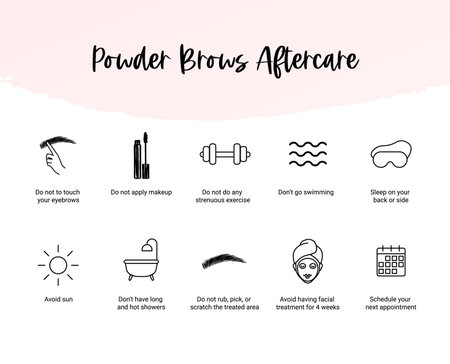1. Understanding PCOS and Its Effects on Hair Growth
Polycystic Ovary Syndrome (PCOS) is a common hormonal disorder that affects many women, often starting in their reproductive years. It can cause a range of symptoms, including irregular periods, weight gain, acne, and fertility issues. One of the most distressing effects for many women is excessive hair growth, known as hirsutism.
What Is PCOS?
PCOS occurs when a woman’s ovaries produce higher-than-normal levels of androgens—male hormones that are present in both men and women but usually in lower amounts in females. These hormonal imbalances can lead to multiple small cysts forming on the ovaries, although not all women with PCOS have cysts.
Common Symptoms of PCOS
| Symptom | Description |
|---|---|
| Irregular periods | Menstrual cycles that are infrequent or unpredictable |
| Weight gain | Tendency to gain weight easily, especially around the abdomen |
| Acne | Persistent breakouts due to excess androgen levels |
| Hirsutism (excessive hair growth) | Unwanted hair growth on the face, chest, back, or other areas |
| Hair thinning | Patches of hair loss or overall thinning on the scalp |
| Mood changes | Anxiety, depression, or mood swings |
Why Does PCOS Cause Excessive Hair Growth?
The increased androgen levels in women with PCOS stimulate hair follicles in areas where men typically grow hair—such as the face, chest, and back. This leads to thick, dark hair growing in places where most women have only fine, light hair. The severity of hirsutism varies from person to person but can be emotionally distressing for those affected.
The Impact of Hirsutism on Women with PCOS
The presence of unwanted facial or body hair can lead to self-consciousness and lower self-esteem. Many women seek solutions to manage this condition, ranging from temporary methods like shaving and waxing to more permanent options like electrolysis.
2. What Is Electrolysis? The Science Behind Permanent Hair Removal
For women with Polycystic Ovary Syndrome (PCOS), excessive hair growth can be a frustrating and distressing symptom. Many hair removal methods provide temporary relief, but electrolysis stands out as the only FDA-approved permanent hair removal method. Understanding how it works can help you decide if its the right solution for managing unwanted hair caused by PCOS.
How Does Electrolysis Work?
Electrolysis is a process that permanently destroys hair follicles using an electric current. A trained electrologist inserts a very fine probe into the hair follicle, delivering a small amount of electrical energy to destroy the follicle’s ability to grow hair.
Types of Electrolysis
There are three main types of electrolysis techniques used today:
| Type | Description |
|---|---|
| Galvanic Electrolysis | Uses a chemical reaction with direct current to destroy the follicle. |
| Thermolysis (Shortwave) | Uses high-frequency alternating current to generate heat and disable the follicle. |
| Blend Method | Combines galvanic and thermolysis for a dual-action effect, enhancing effectiveness. |
Why Is Electrolysis FDA-Approved for Permanent Hair Removal?
The U.S. Food and Drug Administration (FDA) recognizes electrolysis as the only method proven to achieve permanent hair removal. Unlike laser hair removal, which only reduces hair growth over time, electrolysis completely eliminates treated follicles.
Key Reasons Electrolysis Is Effective for PCOS-Related Hair Growth:
- Permanence: Once a follicle is destroyed, it cannot grow hair again.
- Works on All Skin and Hair Types: Unlike laser treatments, which work best on dark hair and light skin, electrolysis is effective on all hair colors and skin tones.
- No Hormonal Influence: Since PCOS-related hair growth is driven by hormones, many methods provide only temporary relief. Electrolysis tackles the root cause—destroying the follicle itself.
- Safe for Sensitive Areas: It can be used on facial areas like the chin, upper lip, and jawline where PCOS-related hair growth is most common.
Is Electrolysis Right for You?
If you have PCOS and struggle with unwanted hair growth, electrolysis offers a scientifically backed solution that provides lasting results. While treatment requires multiple sessions depending on the density of hair growth, it remains the most reliable way to achieve smooth, hair-free skin permanently.
Consulting with a licensed electrologist can help determine your personalized treatment plan and set realistic expectations based on your specific needs.

3. Why Electrolysis Is Effective for Women with PCOS
For women with polycystic ovary syndrome (PCOS), unwanted hair growth is a common and frustrating symptom. This excessive hair, known as hirsutism, is caused by hormonal imbalances that increase androgen levels in the body. While there are several hair removal options available, electrolysis stands out as one of the most effective and permanent solutions.
How Electrolysis Targets Unwanted Hair
Electrolysis works by using a small probe to deliver an electric current into each hair follicle. This process destroys the follicle’s ability to grow new hair, providing a long-term solution to unwanted hair growth. Unlike temporary methods such as shaving or waxing, electrolysis directly addresses the root cause of excessive hair by permanently disabling the follicle.
Why Electrolysis Is a Preferred Solution for Women with PCOS
Many women with PCOS struggle with thick, dark facial and body hair due to increased androgen levels. Since electrolysis targets individual follicles and prevents regrowth, it is an ideal choice for those looking for a lasting solution. Below is a comparison of electrolysis with other common hair removal methods:
| Hair Removal Method | Effectiveness | Permanence | Best For |
|---|---|---|---|
| Shaving | Quick but temporary | No | Immediate results, but requires frequent upkeep |
| Waxing | Removes hair from the root but temporary | No | Smoother skin for weeks, but regrowth occurs |
| Laser Hair Removal | Effective for reducing hair growth | Semi-permanent | Darker hair on lighter skin; may require maintenance sessions |
| Electrolysis | Permanently removes hair by destroying follicles | Yes | The most reliable option for all skin and hair types, especially for PCOS-related hirsutism |
The Benefits of Choosing Electrolysis for PCOS-Related Hair Growth
Apart from its permanent results, electrolysis offers several benefits for women with PCOS:
- Suits All Skin and Hair Types: Unlike laser treatments that work best on certain skin tones and hair colors, electrolysis is effective regardless of skin or hair type.
- No Regrowth: Once a follicle is destroyed through electrolysis, it cannot produce new hair.
- No Dependency on Hormonal Changes: Since PCOS causes fluctuating hormone levels, temporary methods often lead to recurring growth. Electrolysis eliminates this concern.
- No Need for Continuous Maintenance: Unlike shaving or waxing, which require frequent touch-ups, electrolysis provides a long-term solution.
- Treats Small and Large Areas: Whether you need treatment for your face, chin, or other areas affected by PCOS-related hair growth, electrolysis can be customized accordingly.
A Personalized Approach to Hair Removal
The effectiveness of electrolysis depends on multiple factors such as hair thickness, treatment area size, and individual hormonal conditions. Women with PCOS often require multiple sessions to treat different areas comprehensively. However, once the process is completed, the results are truly permanent—giving women freedom from constant shaving or waxing.
If you’re struggling with unwanted hair due to PCOS, electrolysis offers a proven solution that targets the problem at its source. With consistent treatments and professional guidance, many women have successfully achieved smooth, hair-free skin that lasts a lifetime.
4. Comparing Electrolysis to Other Hair Removal Methods
For women with PCOS, managing excessive hair growth can be challenging. There are several hair removal options available, but not all provide the same results. Let’s compare electrolysis with other common methods like laser treatment, waxing, and shaving to see why electrolysis is a great choice for PCOS-related hair growth.
Electrolysis vs. Laser Hair Removal
Both electrolysis and laser treatments are popular long-term hair removal solutions, but they work differently:
| Method | How It Works | Effectiveness for PCOS Hair Growth | Pain Level | Permanent Results? |
|---|---|---|---|---|
| Electrolysis | Uses an electric current to destroy hair follicles one by one. | Highly effective for all hair and skin types. | Mild to moderate discomfort. | Yes, it permanently removes hair. |
| Laser Hair Removal | Uses laser energy to target pigment in the hair follicle. | Less effective for light-colored or fine hair; works best on dark, coarse hair. | Mild discomfort, similar to a rubber band snap. | No, it reduces hair growth but doesn’t guarantee permanent removal. |
Electrolysis vs. Waxing
Waxing is a quick method for removing unwanted hair, but it has some downsides compared to electrolysis:
- Pain Level: Waxing can be very painful, especially on sensitive areas like the face.
- Longevity: Waxing only removes hair temporarily. New growth appears within a few weeks.
- Impact on PCOS Hair Growth: Since PCOS causes excessive and fast-growing hair, waxing needs to be done frequently, making it inconvenient over time.
- Permanence: Unlike electrolysis, waxing does not offer permanent results.
Electrolysis vs. Shaving
Shaving is the easiest and most accessible method of hair removal, but it has significant drawbacks:
- Frequency: Hair grows back quickly after shaving, often within a day or two.
- Texture: Shaved hair tends to feel rough and stubbly as it grows back.
- Irritation: Frequent shaving can cause razor bumps, cuts, and skin irritation.
- Permanence: Shaving only cuts the hair at the surface and does nothing to prevent regrowth.
Why Electrolysis Stands Out for PCOS-Related Hair Growth
The biggest advantage of electrolysis is that it permanently eliminates unwanted hair. For women with PCOS who struggle with persistent and excessive hair growth, this makes electrolysis a highly effective solution. While other methods may provide temporary relief, electrolysis offers a lasting result that helps restore confidence and reduce the need for constant maintenance.
If you’re looking for a long-term way to manage PCOS-related hair growth, electrolysis is worth considering!
5. What to Expect During Electrolysis Treatment
For women with PCOS, electrolysis can be a game-changer in managing unwanted hair growth. Understanding what happens during treatment can help ease any anxiety and set the right expectations.
The Electrolysis Process
Electrolysis works by using a tiny probe to deliver an electric current into the hair follicle, permanently destroying its ability to grow hair. Here’s a general step-by-step breakdown of what you can expect:
| Step | Description |
|---|---|
| Consultation | Your electrologist will assess your hair type, skin sensitivity, and medical history to create a personalized treatment plan. |
| Preparation | The area will be cleansed, and a numbing cream may be applied if needed. |
| Treatment | A fine probe is inserted into each hair follicle, delivering a small amount of electrical energy to destroy the follicle. |
| Post-Treatment Care | Your electrologist will provide aftercare instructions, such as avoiding sun exposure and keeping the area clean. |
Treatment Sessions and Duration
The number of sessions required depends on factors like hair density, hormonal influence from PCOS, and individual response to treatment. Since electrolysis targets each hair follicle individually, multiple sessions are needed for permanent results. Most women with PCOS require regular treatments over several months or even years to fully manage unwanted hair growth.
How Many Sessions Will You Need?
Here’s a general estimate based on different areas:
| Area Treated | Average Number of Sessions | Session Frequency |
|---|---|---|
| Upper Lip & Chin | 15-30+ sessions | Weekly or biweekly at first, then less frequently over time |
| Jawline & Neck | 20-40+ sessions | Weekly or biweekly initially, then tapering off |
| Sideburns & Cheeks | 15-35+ sessions | Similar frequency as other facial areas |
| Body Areas (e.g., abdomen, chest) | Varies based on hair thickness and density | Initially frequent, then spaced out over time |
Expected Results Over Time
You won’t see instant results after one session since electrolysis gradually weakens follicles. Here’s what most women experience:
- After a few sessions: Slower regrowth and finer hairs replacing thicker ones.
- After several months: Noticeable reduction in treated areas with some stubborn hairs remaining.
- After full treatment: Permanent removal of treated hair follicles, leading to smooth skin.
- Maintenance: Occasional touch-ups might be needed for any new hair growth due to hormonal fluctuations from PCOS.
Possible Side Effects and Aftercare Tips
Mild Side Effects You Might Experience:
- Slight redness: Temporary irritation that fades within hours.
- Mild swelling: Some people experience slight puffiness around treated follicles.
- Tingling or sensitivity: The area may feel sensitive for a short period post-treatment.
- Tiny scabbing: Some people develop small scabs that heal naturally without scarring.
- Pigmentation changes: Rare but possible; usually temporary.
How to Care for Your Skin After Treatment:
- Avoid touching or scratching the treated area.
- No makeup or harsh skincare products on the area for at least 24 hours.
- Avoid sun exposure and use sunscreen to prevent hyperpigmentation.
If you have PCOS and struggle with excessive hair growth, electrolysis offers a reliable solution. With patience and consistency, you can achieve smooth, hair-free skin that lasts!
6. Self-Care and Confidence: Managing PCOS and Hair GrowthLiving with PCOS can be challenging, especially when dealing with unwanted hair growth. However, electrolysis offers a permanent solution, helping women regain confidence and feel comfortable in their own skin. While undergoing electrolysis treatments, practicing self-care and maintaining a positive mindset are essential for overall well-being.
Building Confidence Through Electrolysis
Unwanted facial and body hair can take a toll on self-esteem. Electrolysis provides a long-term solution, reducing the need for constant shaving or plucking. Here’s how it can help boost confidence:
- Permanent Results: Unlike temporary methods, electrolysis eliminates hair at the root, providing lasting smoothness.
- No More Daily Maintenance: Say goodbye to the stress of frequent hair removal routines.
- Improved Skin Health: With fewer ingrown hairs and irritation, your skin will look and feel better.
Self-Care Tips During Electrolysis Treatments
While electrolysis works to remove unwanted hair permanently, incorporating self-care practices can make the journey smoother and more empowering.
| Self-Care Tip | Description |
|---|---|
| Stay Hydrated | Drinking plenty of water helps keep your skin healthy and aids in healing after electrolysis sessions. |
| Use Gentle Skincare Products | Avoid harsh chemicals that may irritate treated areas; opt for soothing moisturizers and gentle cleansers. |
| Avoid Tweezing or Waxing | Let electrolysis do its job—plucking hairs between sessions can interfere with treatment effectiveness. |
| Practice Stress Management | PCOS symptoms can be worsened by stress; try yoga, meditation, or deep breathing exercises to stay relaxed. |
| Wear Sunscreen | Treated areas may be sensitive to sunlight, so always apply SPF to prevent irritation or discoloration. |
Embracing Your Journey with Confidence
Managing PCOS-related hair growth is not just about treatment—it’s about embracing your journey with confidence. Surround yourself with supportive friends and family, seek professional guidance when needed, and remember that you are more than your appearance. Electrolysis is a step toward feeling empowered in your own skin, but true confidence comes from within.
You Are Not Alone
If youre struggling with self-esteem due to PCOS symptoms, consider joining online support groups or connecting with others who share similar experiences. Talking about your journey can provide encouragement and reassurance that youre not alone in this process.
Your Confidence Matters
Taking care of yourself while managing PCOS is crucial. By combining electrolysis with self-care practices, you can regain control over unwanted hair growth while prioritizing your mental and emotional well-being. Keep going—you deserve to feel confident and beautiful every step of the way!


